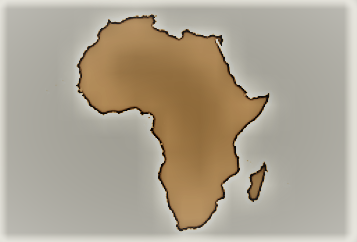A new GLO Discussion Paper highlights the role of trade-growth-structural factors for simulating scenarios of technology-imports contents in a global non-linear CGE model.

GLO Discussion Paper No. 1251, 2023
Germs, Globalization, and Trade Spillovers: How could COVID-19 affect African Economies and AfCFTA – Download PDF
by Das, Gouranga G. & Maswana, Jean-Claude & Hirano, Yumeka
GLO Fellow Gouranga Das
Author Abstract: Drawing on selective stylized facts, the paper evaluates the growth-effects for African countries and the disruptive potentials resulting from the COVD-19 pandemic, as African countries are involved in intra-regional integration processes. As AfCFTA involving 55 countries (ratified by 22 countries) is an ambitious project for industrialization for achieving SDG targets of inclusive development via trade facilitation, and regional integration, the paper argues that given the Covid-19 setback full potential depends on trade-led spillover benefits and structural factors. Our objective is to show that: given the low labor-productivity growth in the African nations-without reinventing the wheel by estimating the impact of preferential access trade agreement–the ricochet effect of the trade-induced productivity benefits via intermediates in the presence of COVID-19-led trade disruptions is crucial. The study highlights the role of trade-growth-structural factors for providing basis to simulate scenarios of technology-imports contents in a global non-linear CGE model, viz., Global Trade Analysis Project (GTAP) with 27 sectors and 51 regions. The paper shows: (i) role of trade-mediated productivity benefits for facilitating regional supply chain, (ii) factors underlying absorption of such benefits for economic transformation; (iii) how trade and technology could boost trade not just trade-liberalization per se; (iv) given the region’s weaker production basis, in the presence of Covid-19, how the risks posed by trade plus non-trade external shocks to African intra-regional integration matter. Findings also indicate that technological benefits due to trade liberalization under FTA may be hindered by non-trade factors like epidemic or pandemic resulting in skill deficiencies, and translating into productivity slowdown. The paper empirically shows that for realizing the enormous potential of AfCFTA as driver of industrialization deep policy reforms in the areas of technology, absorptive capacity, institutions, and infra- and info-structure for digitization are necessary for long-term development. Also, the result proves that: for effectiveness of AfCFTA to deliver benefits to poor countries via allocative efficiency and welfare, apart from improving the ‘behind-the-border’ factors, trade with not only emerging economies like China, but also with industrialized nations is important. Also, the research shows the necessity of formulating policies to develop targeted sectors for reaping substantial benefits via AfCFTA. Thus, AfCFTA is not a panacea for industrial development.
JUST PUBLISHED
Vol. 36, Issue 2, April 2023: Journal of Population Economics (JOPE) 16 articles.
https://link.springer.com/journal/148/volumes-and-issues/36-2
Vol. 36, Issue 1, January 2023: Journal of Population Economics (JOPE) 16 articles. https://link.springer.com/journal/148/volumes-and-issues/36-1
Watch the videos of article presentations on December 1, 2022 during the GLO Global Conference 2022.
JOPE has CiteScore 6.5 (2021, LINK) & Impact Factor 4.7 (2021, LINK)

GLO Discussion Papers are research and policy papers of the GLO Network which are widely circulated to encourage discussion. Provided in cooperation with EconStor, a service of the ZBW – Leibniz Information Centre for Economics, GLO Discussion Papers are among others listed in RePEc (see IDEAS, EconPapers). Complete list of all GLO DPs – downloadable for free.
The Global Labor Organization (GLO) is an independent, non-partisan and non-governmental organization that functions as an international network and virtual platform to stimulate global research, debate and collaboration.
Ends;

